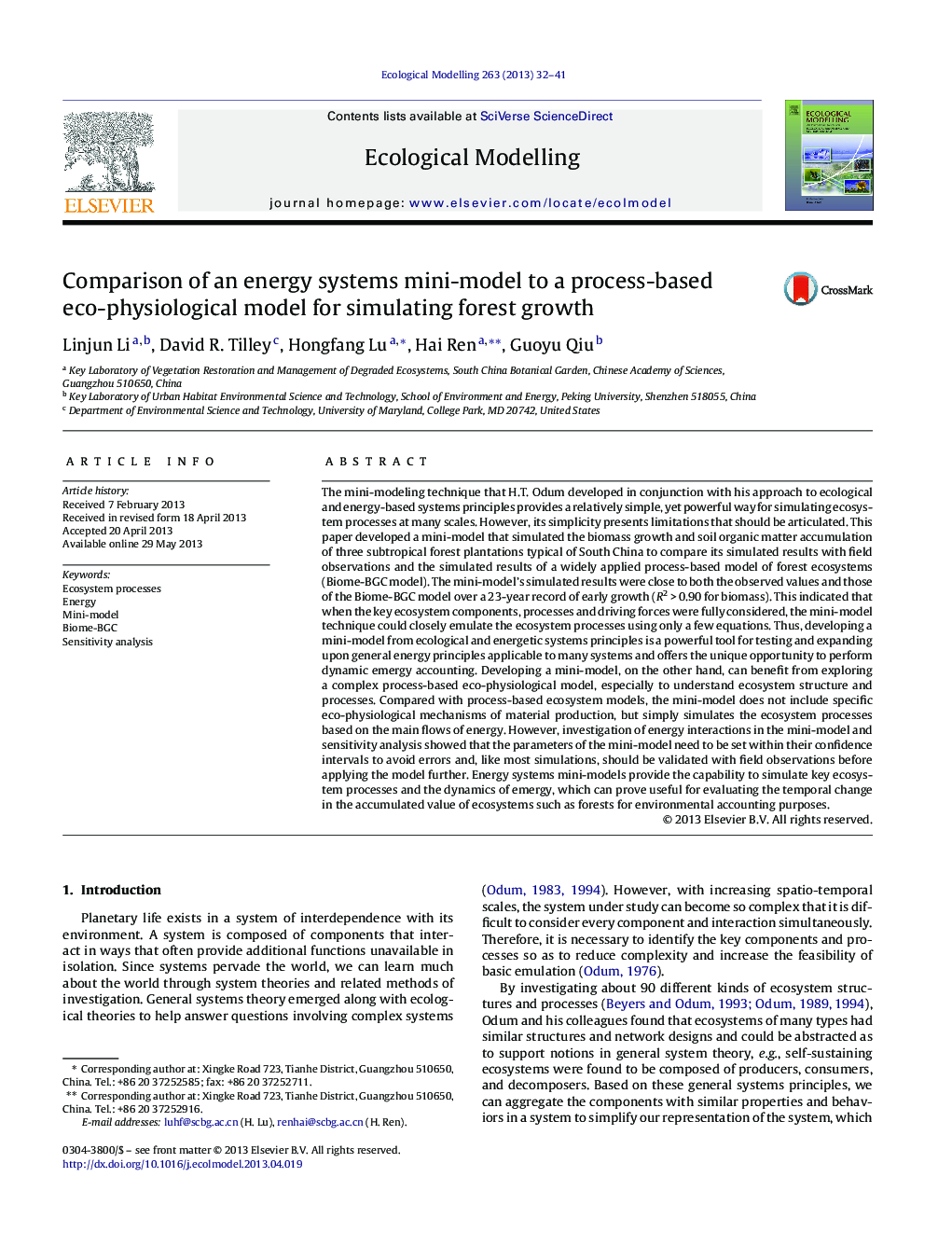| کد مقاله | کد نشریه | سال انتشار | مقاله انگلیسی | نسخه تمام متن |
|---|---|---|---|---|
| 6297160 | 1617483 | 2013 | 10 صفحه PDF | دانلود رایگان |
عنوان انگلیسی مقاله ISI
Comparison of an energy systems mini-model to a process-based eco-physiological model for simulating forest growth
ترجمه فارسی عنوان
مقایسه مدل مفهومی سیستم های انرژی به مدل فیزیولوژی مبتنی بر فرآیند برای شبیه سازی رشد جنگل
دانلود مقاله + سفارش ترجمه
دانلود مقاله ISI انگلیسی
رایگان برای ایرانیان
کلمات کلیدی
موضوعات مرتبط
علوم زیستی و بیوفناوری
علوم کشاورزی و بیولوژیک
بوم شناسی، تکامل، رفتار و سامانه شناسی
چکیده انگلیسی
The mini-modeling technique that H.T. Odum developed in conjunction with his approach to ecological and energy-based systems principles provides a relatively simple, yet powerful way for simulating ecosystem processes at many scales. However, its simplicity presents limitations that should be articulated. This paper developed a mini-model that simulated the biomass growth and soil organic matter accumulation of three subtropical forest plantations typical of South China to compare its simulated results with field observations and the simulated results of a widely applied process-based model of forest ecosystems (Biome-BGC model). The mini-model's simulated results were close to both the observed values and those of the Biome-BGC model over a 23-year record of early growth (R2Â >Â 0.90 for biomass). This indicated that when the key ecosystem components, processes and driving forces were fully considered, the mini-model technique could closely emulate the ecosystem processes using only a few equations. Thus, developing a mini-model from ecological and energetic systems principles is a powerful tool for testing and expanding upon general energy principles applicable to many systems and offers the unique opportunity to perform dynamic emergy accounting. Developing a mini-model, on the other hand, can benefit from exploring a complex process-based eco-physiological model, especially to understand ecosystem structure and processes. Compared with process-based ecosystem models, the mini-model does not include specific eco-physiological mechanisms of material production, but simply simulates the ecosystem processes based on the main flows of energy. However, investigation of energy interactions in the mini-model and sensitivity analysis showed that the parameters of the mini-model need to be set within their confidence intervals to avoid errors and, like most simulations, should be validated with field observations before applying the model further. Energy systems mini-models provide the capability to simulate key ecosystem processes and the dynamics of emergy, which can prove useful for evaluating the temporal change in the accumulated value of ecosystems such as forests for environmental accounting purposes.
ناشر
Database: Elsevier - ScienceDirect (ساینس دایرکت)
Journal: Ecological Modelling - Volume 263, 10 August 2013, Pages 32-41
Journal: Ecological Modelling - Volume 263, 10 August 2013, Pages 32-41
نویسندگان
Linjun Li, David R. Tilley, Hongfang Lu, Hai Ren, Guoyu Qiu,
